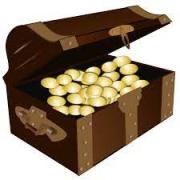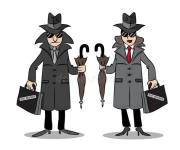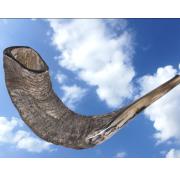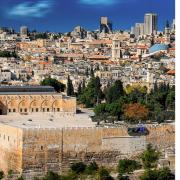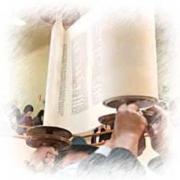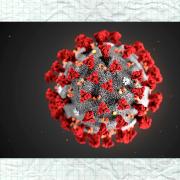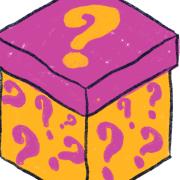The Great Shofar
Shofar has three distinctive sounds - Tekiah, a long, loud blast; Shevarim, three broken blows; and Teruah, nine broken blows. Why exactly are these notes being played?
The story is told in the Talmud, a mother of General Sisra would always wait for her son to return home from the battle. One day, she waited and waited, and it got very late, and he was not coming back, since he usually should have been back a while ago. She understood that he had been killed, and she started to cry for her son. She cried a bitter cry that only a mother would cry for her son.
So we mimicked her cry with a shofar.
My question would be a pretty simple one: Why do we mimic the cry of a non-Jewish lady in our service to G-d? What does she have to do with us? We have plenty of our personalities crying throughout the Torah —so why don't we use any of them? Why is the cry of this lady being used?
So, please allow me to offer you what may be the explanation.
In the story of Akedat Yitzchak, when G-d comes to Avraham Avinu, He asks him to bring his son as a sacrifice. The Parashat Vayera 22:2 says: "Take your son, your only son, the one you love, Isaac, and go to the land of Moriah. Offer him there as a burnt offering on a mountain, I will show you." So Avraham Avinu goes and ties up Yitzchak, and places him on the Mizbeach. Once he was on the Mizbeach and Avraham was about to bring him as a sacrifice, Hashem tells him, "Avraham, Avraham. Do not raise your hand against the boy or do anything to him. Because now, I know that you fear G-d since you have not withheld your son, your favored one, from Me." But Midrash says that Avraham Avinu wanted to carry out the commandment, to bring Yitzchak as a korban, and some say he did so.
So here's my question: why such a desire to hurt him? Yes, I know he wanted to carry out the commandment, but for Yitzchak, it wasn't a fun moment. Later, we see that when Avraham goes to fight for Lot and is offered prisoners instead of gold, he declines, saying he won't take even shoelaces from the king as booty. Again, why not feel bad for the prisoners and take them and set them free, or convert them and show them the path to serve the True G-d?! When it came to Yishmael, and Hashem told him to listen to Sarah and throw him out, Avraham Avinu grew sad, but Hashem reassured him, saying He would make a nation out of him, since he was his seed. How come Avraham didn't feel sad for the prisoners or Yitzchak? No compassion was shown, if I may say so.
We go further into the story of Chana in the Book of Samuel. Chana had no children and was praying for a child. Eli, the Cohen, saw her and thought she was drunk; she asked him a question: "How come you didn't see in your prophetic vision and bless me so I can have a child?" Why didn't you feel bad for me? Again, no compassion was shown.
More on the story of Chana and Penina. You'll be amazed at how much suffering Chana had to endure, all because she had no kids. This is yet another case of zero compassion.
We go to Yaakov Avinu. When Rachel approaches him and asks him to give her a child, he tells her to talk to G-d, since he can't help her. Again, there is no compassion shown.
The same happens with the brothers and Yoseph. Yoseph begged them to return him to his father, but they sold him to Egypt, again without compassion.
During the First and Second Bet Hamikdash, there was no compassion shown toward one another; the nation had plenty of man-to-man problems, to the point that Hashem allowed the Two Temples to be destroyed, millions to be killed, and millions to be sent into exile.
This was when the Men of Great Assembly made it a law to blow the shofar in exile - mimicking the cry of a non-Jewish lady - the mother of General Sisra. The nation went into exile to be amongst the non-Jews, and there in those distant lands to blow the broken sounds of the shofar and to experience hatred, humiliation, death, pain, and suffering - because the nation has displayed no compassion towards each other in Israel, in the Land of G-d, and in the House of Hashem.
And now two thousand years later, we are bitter and have suffered plenty. But how do we know that we, as a nation, have acquired the trait of compassion and are ready for the next chapter of our history?
In the Book of the Prophet Isaiah, Chapter 53 discusses Mashiach and his suffering. Here comes the question: Why does Hashem make him suffer? Why put him through so many—no compassion shown—moments? Let him live his life, and later appoint him to carry out his mission. Does it make sense, wouldn't you think?
And here's why Mashiach is going through the rough waters...
After a long exile and plenty of suffering, Hashem wants to see - if and when the Nation of Israel will find a potential Mashiach; Hashem awaits for the nation to feel his pain, "to rescue him," and to "come over to the Mizbeach on which Mashiach is tied and suffering", and this time say to Him - to Hashem:
"Hashem, Hashem, do not raise Your Hand against the boy, or do anything to him. Since now, You know that we fear G-d... - for thousands of years, away from home, in exile, scattered all over the world, we have seen it all - death, illnesses, wars, pogroms, hunger, hatred, humiliation, difficulties, pain, suffering, and have had plenty of other unpleasant events happen to us. We have seen them all, and we have experienced them all, but we have stayed as Jews and still fear ONLY You. And now the time has come to "take this boy OFF the Mizbeach" and offer our korban - this prayer, and blast the shofar, just like Avraham Avinu did on That Day. And with that blast, Avraham Avinu started the exile, but Today - this exile will end with us right now, also with the blast of the shofar. The blast of Tekiah - a long, loud blast - תקע בשופר גדול לחרותנו - Teka b’Shofar Gadol l’Cherutenu - Sound the Great Shofar for Our Freedom. No more the sound of the broken blasts - no more sorrow, tears, pain, and hardships.”
And with this long blast of shofar, the nation closes the old chapter of Exile - of this Galut and begins a new chapter in History - the Chapter of Geulah Shlemah, a Complete and Long-Awaited Redemption.
May it be so, and in our days, Amen!!
Shmuel Katanov
09/10/2024






